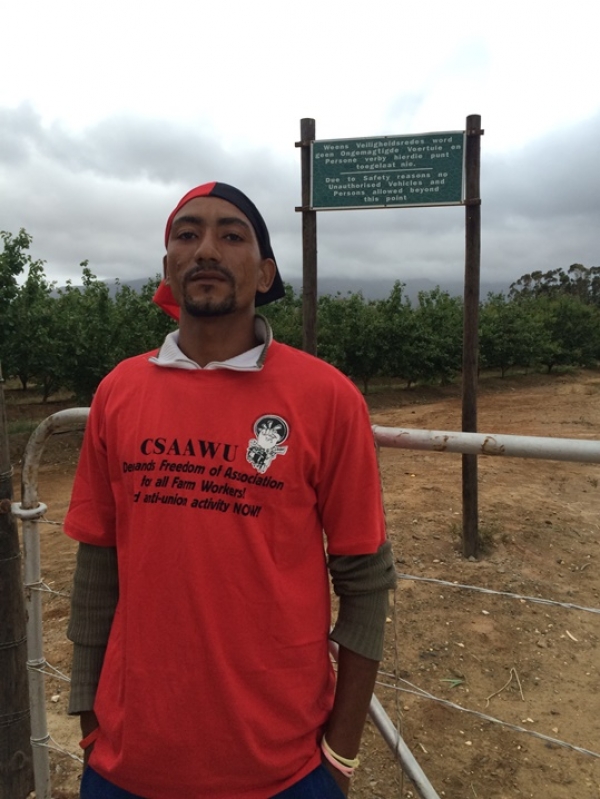Ethical trade body fails farm worker

The Wine Industry Ethical Trade Association (Wieta), which lists some of the country’s top producers, appears to have recanted on its promise to investigate allegations of assault on a farm worker by one of its members. A board member says the organisation has double standards - quick to help its farm owning members, while sweeping aside complaints of abuse from workers.
On Friday morning, Michau Viljoen, owner of Eilandia farm, will stand trial for assault in the Robertson Magistrates Court. The farm is a member of the Wine Industry Ethical Trade Association (Wieta) - an organisation that accredits farms which are deemed to comply with a code of ethical conduct. Some of South Africa’s foremost wineries appear on its list of products certified for “fair labour practices”.
Commercial, Stevedoring, Agricultural and Allied Workers Union (Csaawu) laid a complaint with Wieta over the assault. Wieta’s CEO Linda Lipparoni responded to the allegations against Viljoen made by employee Gerald Slingers. “Wieta condemns in the strongest terms any acts of physical and verbal abuse by any party,” Linda Lipparoni told GroundUp in early December 2014.
Slingers claims that he was assaulted as punishment for facilitating a meeting between Csaawu and other workers, after work hours, on the farm.
An “immediate investigation” would be conducted, involving participation from Csaawu, Slingers and Viljoen, Lipparoni had said.
She had pointed to Wieta’s code which guarantees freedom of association, and prohibits physical abuse and unfair discrimination against workers.
But since the beginning of this year, GroundUp has been unable to confirm the status of this investigation, despite attempts to reach Lipparoni.
Csaawu deputy general secretary Karel Swart, said that Wieta’s apparent lack of follow up has allowed for Slingers to be further discriminated against at work. Recently leaked emails indicate that Wieta did attempt to set up a mediation between Viljoen and Slingers. According to an email from Lipparoni to her board members, Viljoen declined on legal advice to participate in a non-statutory mediation process.
A subsequent email from Lipparoni raises concern over reactions from retailers. ‘The allegations have received national media coverage and international concern from retailers and buyers in the UK, ETI [Ethical Trade Initiative] and Sweden wanting to know what Wieta’s position is vis a vis.’
The email asks for board members to give feedback on a number of recommendations, including putting the farm’s accreditation on hold pending the outcome of the criminal case, and that future certification be subject to Eilandia’s participation in a mediation process.
“As far as I know, this is where the process stopped. It was never communicated to the board whether those recommendations were implemented,” said a board member who agreed to speak to GroundUp on the condition of anonymity.
“I’m not surprised, if that is the case. There is this double standard in the organisation. If there is an issue raised by members, farm owners, it is dealt with and settled as a matter of urgency. But, the abuse of workers is swept aside and ignored. It is quite depressing.”
Support independent journalism
Donate using Payfast


This article is licensed under a Creative Commons Attribution-NoDerivatives 4.0 International License.
